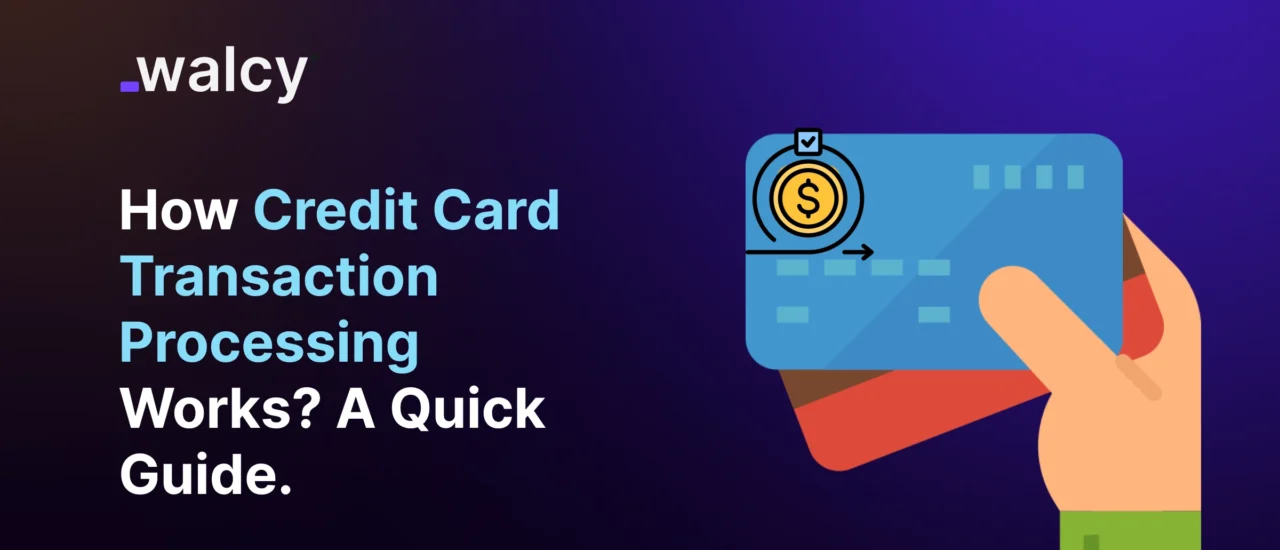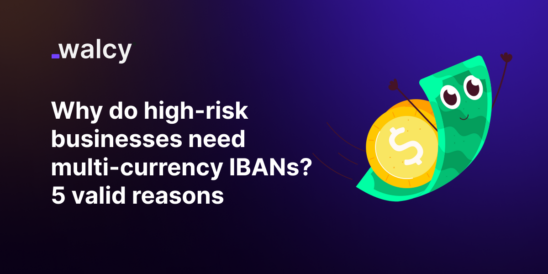Today, credit card transaction processing is indispensable as fewer cash transactions have become standard in daily purchases and international travel.
Understanding how credit card processing works may help consumers make appropriate choices, particularly in choosing the best card for international travel or minimizing the credit card processing fee.
This blog is a comprehensive guide wherein a discussion will be made on how credit card transactions work and the implications of foreign transaction fees. It will also recommend some of the best credit cards for international transactions.
The Basics of Credit Card Transaction Processing
Every time a credit card transaction is made, a lot of enchantments happen at the back end to ensure that the transaction is completed without any issues. The process generally looks something like this:
-
Authorization
Any transaction with a credit card requires authorization. Your credit card information passes via a merchant’s point-of-sale system and directly to an acquiring bank when you swipe, tap, or even enter your card information online.
This usually happens with the assistance of a payment processor.
After that, it continues on the card network, which includes Visa, Mastercard, American Express, and others, to seek confirmation from the bank that issued your credit card. It is required to affirm that:
- The card is going to get validated.
- There is enough credit to be availed of for the amount to be transacted.
- The transaction won’t trigger any fraud alerts.
It checks for the availability of credit and whether the card in use has not been reported stolen. Then, an authorization code is sent back to the acquiring bank by the processor, who further forwards it to the merchant. All that in a matter of seconds.
-
Settlement
After authorization, the order of things would be to settle. It is supposed to take place at the close of business when the retailer sends all the authorized transactions to the acquiring bank, who in turn sends them to the various card networks.
Information trickles down to card networks, which further communicate with different issuing banks to facilitate the amount that gets deducted from your credit limit and get transferred to the merchant’s account in one to three business days.
-
Clearing
Clearing merely ensures that, at every instance, the transaction is reconciled across the acquiring and the issuing bank to ensure that the sum of money is properly credited across banks and accounts.
It tends to occur in the background; therefore, one can rely on it to have any merchant receive their funds.
-
Funding
Finally, funding is the point at which the funds leave the issuing bank and land in the acquiring bank, which means the transaction has been settled.
This step solidifies the payment received by the merchant and locks the consumer’s commitment to repay the credit utilized.
Read about: Best Merchant services providers: A Complete Guide.
Understanding Credit Card Processing Fees
Among the most significant elements that occur throughout the credit card transaction process are credit card processing fees.
These are very important fees to both the consumer and the merchant. These are the normal types of fees involved in it:
Interchange Fees:
The interchange fees are charged to an acquiring bank from the bank that issues the card because it is that bank that processes the transaction. The interchange fees range from 1% to 3% of the transaction amount taken from the merchant. These rates depend on many factors including:
- Type of card used: Most reward cards have higher charges compared to normal cards.
- Merchant category: Some industries usually are considered high risks.
- Method of Transaction: In-person transactions may have lower fees compared to online ones.
Assessment Fees
The assessment fees charged by the card networks are for the total volume being processed through their networks. These, too, are rather low compared to the interchange fees. They can also be variable based on card type and type of transaction.
Merchant Service Fees
Merchants may also pay a monthly fee usually to the processor, which in general is referred to as a merchant service charge. It pays for interchange and assessment fees and processing of credit card transactions.
Read about: What is a Merchant Acquirer? Know Everything About.
Other Fees
Other fees that may be levied on a merchant include chargeback fees, monthly/annual fees, and equipment fees.
A chargeback fee is useful in a case where the customer disputes a transaction. Monthly or yearly charges involve the maintenance of the merchant’s account.
There are Equipment fees that include Terminal POS systems and/or card readers
The above two charges require awareness both on the part of the merchant and that of the consumer.
Both are extra expenses for a merchant, which the merchant has to adjust in the pricing of commodities. These indirectly would affect the cost of whatever the consumer is buying
Read about: What are Operating and Non-Operating Expenses for Businesses?
Foreign Transaction Fees
The foreign transaction fee has become a critical concern for those traveling outside the country or making purchases with international merchants.
The costs are often levied by the credit card issuing banking institution if the transaction is processed in a foreign currency or via a foreign bank.
Here’s all you need to know:
-
What Are Foreign Transaction Fees?
They are typically between 1%, all the way up to 3% of the transaction value. This fee compensates for currency conversion among other added expenses that the issuing bank incurs in processing the transaction. Now, let’s say you make a purchase in Europe for $100 using a credit card that levies a 3% foreign transaction fee, you will pay an additional amount of $3.
-
How to Avoid Foreign Transaction Fees
This should, therefore, be avoided by using credit cards that have no foreign transaction fees. Most of the travel rewards credit cards and some others do not charge this fee and, thus excellent to be used for purchases when traveling abroad.
Best Credit Cards for Travel Abroad
The idea of seeking the best international card is finding options that will not charge foreign transaction fees and meanwhile give travel benefits coupled with cashback. Here are some recommended cards:
Chase Sapphire Preferred® Card: No foreign transaction fees are taken, travel rewards, and excellent customer service.
Capital One Venture Rewards Credit Card: Zero foreign transaction fees and 2 miles per dollar on every purchase.
Discover it® Miles: Zero annual fee and no foreign transaction fees make this card suitable for the incidental tourist.
Best Credit Cards for International Transactions
However, if you are an avid traveler or make lots of purchases abroad, consider the following options that carry a bit more weight in travel benefits:
- American Express Platinum Card®: 5x points on airlines, $200 airline fee credit, Global Lounge Collection. No foreign transaction fees.
- Citi Premier Card: It garners 3x points on travel, including at gas stations. There are no foreign transaction fees, hence the good card for international travelers.
Read about: Top Factors Affecting Foreign Exchange Rates in 2024.
How to Choose the Right Credit Card
A correct selection of credit cards will enrich your entire journey and save you from extra unnecessary expenses. Following are a few points that must be considered while choosing the best card for international travel or purchases.
-
Reward and Benefits
Most rewards credit card programs will offer some kind of reward whereby you have the opportunity to make points or even cash from purchases.
Whether you find yourself traveling very frequently, you may want to consider cards offering travel rewards or, even better, bonuses and perks having to do with lounge access or travel insurance.
-
Interest Rates and Fees
Compare the interest rate and fees on each card. The others are not to have any foreign transaction fee, but they have a very high annual fee or high interest rate. All benefits have to be well weighed against their costs.
-
Worldwide Acceptance
Just know, that not all will accept certain credit cards, such as American Express, especially at smaller businesses or abroad. Generally speaking, a Visa and Mastercard are usually more universally accepted and thus safer bets with foreign travel.
-
Customer Service
Find out what type of customer service you can get from the card issuer. This is the essential part when traveling internationally because of the issuance of customer service in replacing stolen or lost cards and also for fraudulent charges handling.
Conclusion
Understanding Credit card transaction processing is essential for every credit card holder, especially when one undergoes international travel. By knowing these, you will understand the processes of authorization, settlement, clearing, and funding involved in a purchase.
Additionally, evaluating credit card processing fees and foreign transaction fees can help you figure out which credit card is best for you. If you are going abroad, get credit cards with no foreign transaction fees, great rewards, and excellent customer service.
You would, therefore, have the freedom to use your credit card with no other additional hidden charges and an overall hassle-free trip. It may make a huge difference using your card to pay off travel expenses or to purchase souvenirs.
Do follow us on Facebook and LinkedIn, to stay connected with us.



